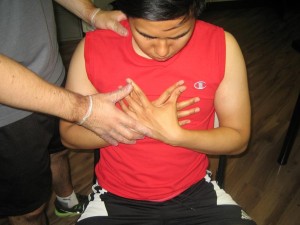It is a known fact that cerebral hypoxia is a condition in which the brain suffers from inadequate oxygen. There are various conditions that can lead to inadequate oxygen to the brain including carbon monoxide poisoning, stroke, heart dysfunction, birth injuries and drowning. Unlike with other types of cells, the brain cells are highly sensitive to hypoxia and rapidly start to die when deprived of oxygen. Always bear in mind that cerebral hypoxia can affect the brain function, damage the brain cells and even lead to death. The deprivation of oxygen can be mild, causing the steady onset of symptoms or severe in which the changes are fast.
https://www.youtube.com/watch?v=T1mf5HJDC2M
Coma
Once oxygen is severely reduced or diminished for extended periods, the body will shut down and becomes comatose. In case the individual is in a state of coma, he/she will become unconscious and no longer responds to stimuli. Once the oxygen supply is restored, the individual can recover and wake up from a coma, but permanent brain damage has likely occurred.
Changes in the behavior, cognitive and personality

It is important to note that the components of the personality are situated in the frontal lobe of the brain and once lack of oxygen damages the frontal lobe, changes in personality can occur. After a stroke, some family members claim that the victim is a different person. Take note that the severity of these changes is linked to the severity of the hypoxia.
The behavioral and cognitive changes can also occur after cerebral damage linked with hypoxia. These changes typically include poor judgment, diminished attention and memory loss.
Heart rate
Once the brain does not receive enough oxygen, the heart rate will heighten in an attempt to supply more oxygen. In case hypoxia is severe, the heart could no longer keep up with the demand and can fail, thus causing a heart attack. It is important that you know what to do during a heart attack. All you have to do is to register for first aid training today.
Motor skills
A symptom that is often recognized with lack of oxygen in the brain is the loss of motor skills or proper coordination. It is important to note that the cerebellum is responsible for most of the coordinated movement as well as the balance. The death of the brain cells can lead to jerkiness and other motor issues.
Fainting
The level of oxygen in the brain can oftentimes drop abruptly in which the nonessential body processes no longer function, thus allowing the vital functions of the brain to continue. This will surely result to fainting. The symptoms such as nausea, lightheadedness and feeling of warmth can precede fainting. If the individual faints regularly, a doctor should be consulted to determine if there is a serious underlying issue.
Brain death
This is the ultimate consequence of severe hypoxia if not reversed as soon as possible. Always bear in mind that brain death is determine by an individual under coma, absence of reaction to pain, lack of cranial nerve reflexes, apnea or inability or breath without the assistance of machinery.
